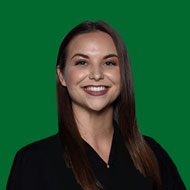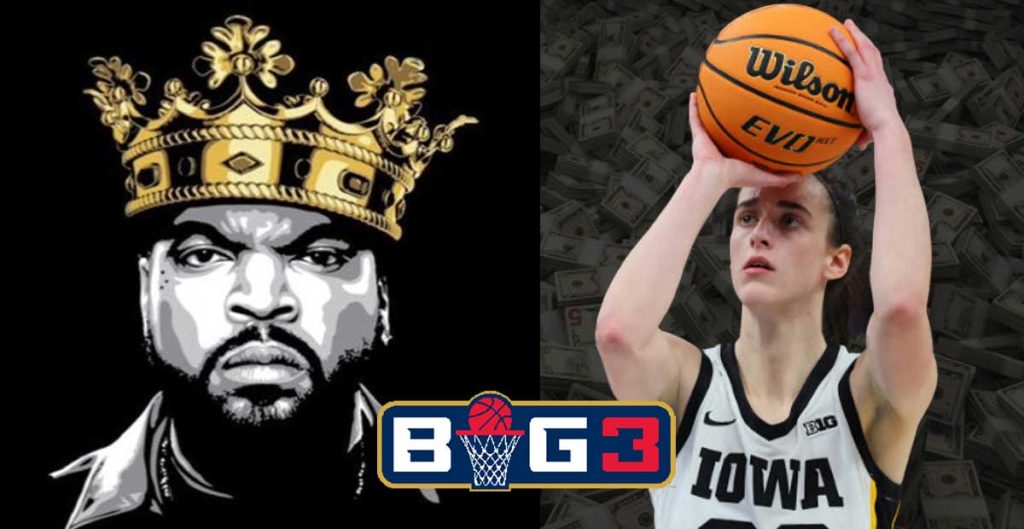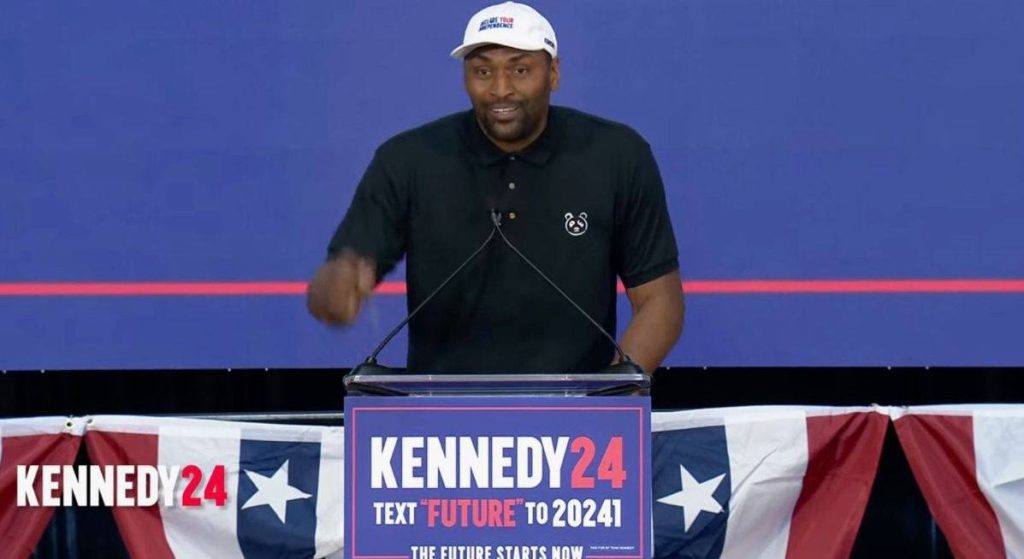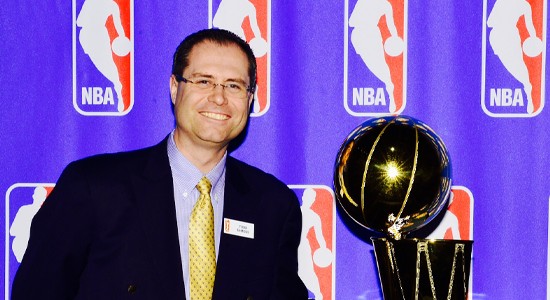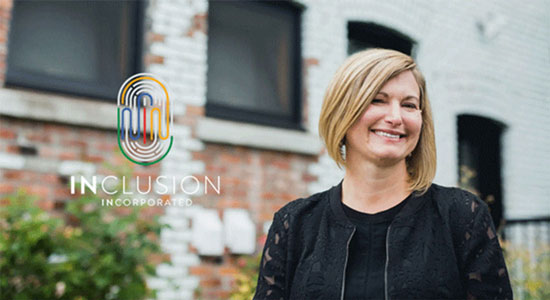
1 on 1 with Andrea Carey | Founder & Chief Inclusion Officer | INclusion INcorporated

As a nation, we systemically exclude instead of systemically include people from our sport and physical activity systems. This means that we are compromising the mental and physical health of so many people across the country.
Andrea Carey
Founder & Chief Inclusion Officer
INclusion INcorporated
The Latest
Jontay Porter Banned From The NBA For Life
Iowa vs LSU: A Landmark Moment in Women’s College Basketball
Former NHLer Josh Ho-Sang Now A Rapper
Metta World Peace Endorses RFK Jr. for President 2024
1Tell us about your role as Founder and Chief Inclusion Officer at INclusion INcorporated. What does your work mean to you?
This work is about creating a better world, it is about a place where my daughter doesn’t have to deal with the sexism that I have dealt with.
It is about my friends with disabilities being able to participate in all of the activities that they choose.
It is about my friends who identify as LGBTQI2S feeling safe to be who they are.
It is about my friends who are Black and Indigenous not having to navigate racist systems.
It is about the opportunity to celebrate our differences and being open to learning about each other, and about our common humanity.
Ultimately, we need to create opportunities for each person to belong. I started INclusion INcorporated to be able to focus on how we support leaders to evolve the cultures of their organizations to create cultures of belonging where each person can show up in the ways they want and need, in the spaces and places they choose.
The world needs this work so much right now.
I have been working in the diversity and inclusion space for over a dozen years, but my roles were never structured so it was a focal point of what I did. Starting INclusion INcorporated was an opportunity to lead through values, to build a company that models inclusion, and to work with other organizations to do the same.
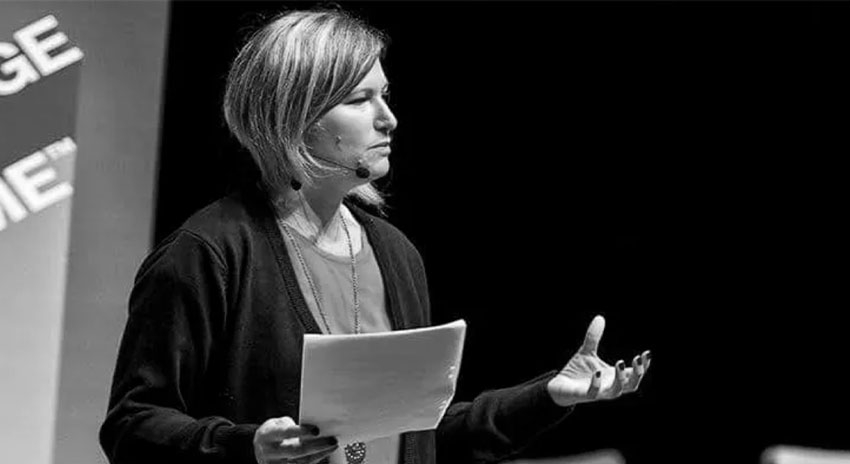
2Inclusion in sport has always been important but is currently at the forefront of all conversations in hopefully, every workplace. With the continued protests and need for accountability and immediate change, how has your work developed and changed to better support your clients?
This year and the spotlight on social justice made our work easier in some ways. Before June, the diversity and inclusion conversations with many organizations were about making the case about why organizations needed this work – sharing the business case and talking about the “right thing to do”.
With the pandemic shining a light on disproportionate impacts for populations on the margins, and with the many examples of systemic and systematic racism that we have witnessed this year, leaders have realized that they need to do something, but they usually don’t know where to start.
Thus, our beginning point has changed, we are listening to where they are at and what they want to achieve, and then digging in with them to look at what makes sense for their work, their culture and their organization. We are supporting them to do something intentional and meaningful. We work with them to build out a realistic action plan, and support the implementation of that plan through a range of training, tools, and systems that imbed the change into their organizational culture.
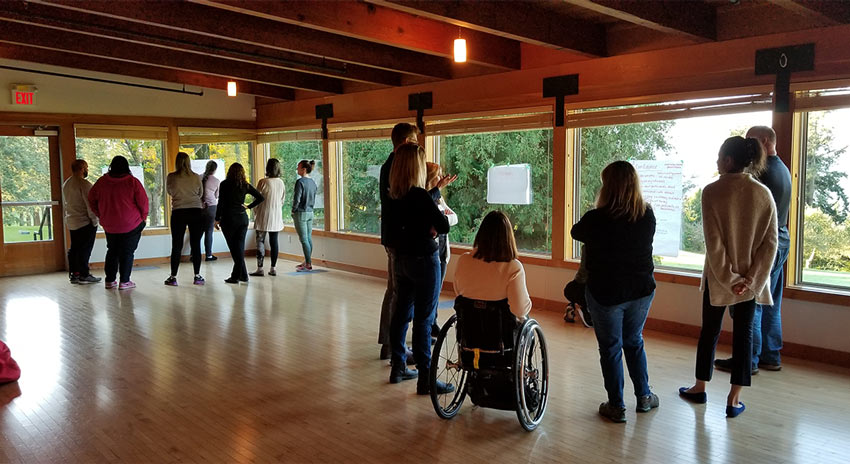
3INclusion INcorporated creates customized programs for each organization they work with. Tell us how you approach creating the programs and how you identify specific needs.
We believe that this work needs to be planned, it needs to have clear goals, and it needs to created with the needs of the organization and their stakeholders at the core of it.
We start with the readiness of the organization, talking to the leaders about what they have done already, and what they want to do. We use this as the foundation to develop their action plan and create goals that are aligned with their overall strategic plan and mandate of their organization.
We shape goals that are specific to their organization and the organization’s needs around diversity. We then look at the data and metrics they will need to create a baseline of where they are at, and how we will evaluate the work ongoing. We look at the accountability structure and develop the governance processes to support that accountability, and we look at the leadership capacities and work to train and support leaders to take an inclusive leadership approach – at all levels of the organization.
We also look at the systems and mechanisms that they will need to support the implementation of the action plan – these might include recruitment and hiring practices, performance reviews, policies, ERGs, and many other pieces that will set them up to move the work forward.
We also stay involved and mentor organizations through their implementation phases so that they have a supportive environment to roll all of the pieces out.
We believe that learning about the organization, supporting them to live their values, and understanding the people in the organization is critical to building out a plan that will both address the diverse needs of the organization, and the needs of the people at the core of the organization.
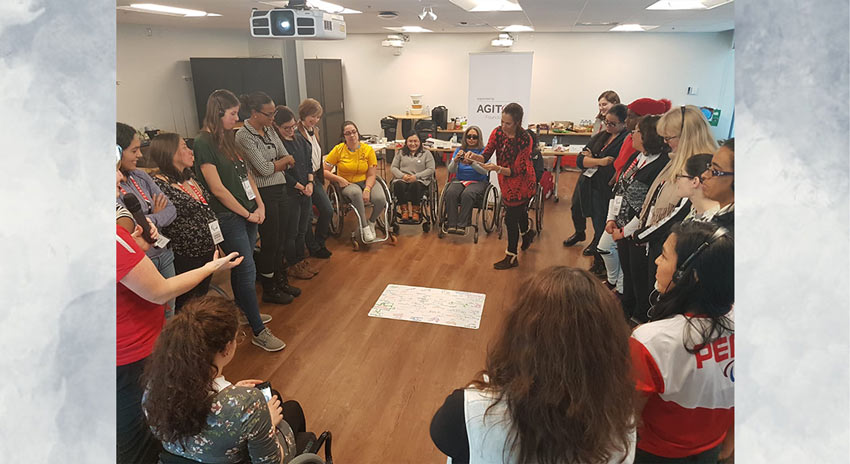
4What are a few key strategies you’ve identified that every sports organization, small or large, can use to better support their staff and create a more inclusive space?
We believe that values need to be at the core of the organization, and need to be explored in terms of how people connect to the organization and their role or place within the organization.
We feel that organizations need to understand what aspects of diversity are important to their work, and then be intentional about building an Inclusion Plan around those.
We also believe that leaders want to do the right things in supporting diversity, but they don’t know where to start, so we work to provide them with the pathway and the tools so that they can navigate an approach to inclusion that works for them, and allows for the vulnerability that will be needed along the way.
We also work to create an action plan that is built around the organization, their capacity, and their goals and then supporting it with systems and mechanisms that make the work sustainable and embedded in how they operate.
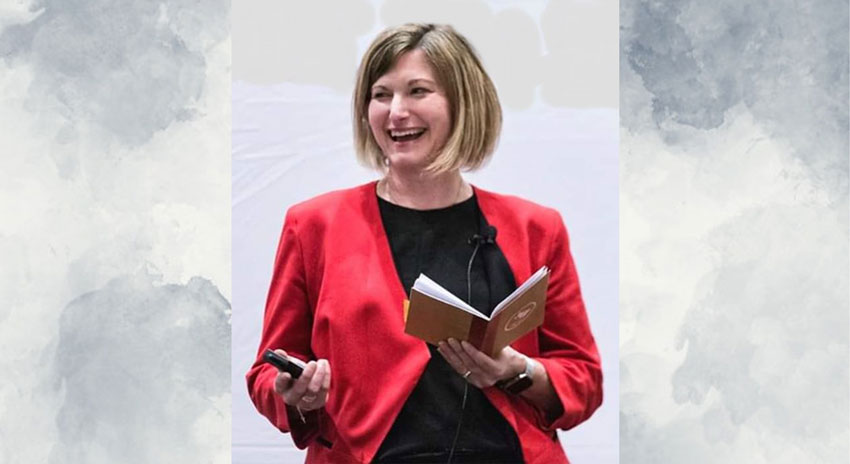
5You also work on the board of directors for the Canadian Paralympic Committee. Could you tell us a little bit about your role and if/how your work at INclusion intertwines?
I have been on the board of Directors of the Canadian Paralympic Committee for ten years, and I began with the goal that people, regardless of their abilities should be able to participate in sport and physical activity.
I am passionate about the inclusion of each person to engage in the activities and opportunities that they choose, in the ways that work for them and in the spaces and places that they want. I am also passionate about sport and physical activity and the power of sport for social connectivity and social development.
These two passions led me to run for the Paralympic Committee Board of Directors in 2010 – shortly after Vancouver hosted the Paralympic Games, and when the Canadian Paralympic Committee was just receiving a larger contribution of federal funding to support their work. It has been an incredible ten years watching the Paralympic brand and opportunities grow across Canada and around the world.
As my work grew over the past ten years, I kept being drawn to diversity and inclusion and it became clear that I needed to focus there.
In 2017 I co-led the formation of the Paralympic Committee’s Diversity and Inclusion Committee, which I currently Chair.
In 2019 I undertook my Canadian Certified INclusion Professional designation and that really helped give me clarity on what I knew and the areas I needed to develop. This work is about constantly learning and unlearning, growing and changing – there is never a lull, especially in 2020.
Launching INclusion INcorporated has helped me realize how much work we need to do to make sport and physical activity inclusive of each person – I knew it before but it becomes clearer as we see the collision of safe sport with diversity and inclusion. They should be part of a connected conversation and plan, but they are currently disconnected, so part of my goal is to raise the awareness and understanding of how many people leave sport because of discrimination, harassment, feeling unsafe, and not feeling like they belong.
As a nation, we systemically exclude instead of systemically include people from our sport and physical activity systems. This means that we are compromising the mental and physical health of so many people across the country. The opportunities that sport can bring in terms of social development and social connection are being missed because we have built something that actually doesn’t work for most individuals.
From a high-performance standpoint that means we are missing out on incredible medal potential, which matters from a national pride standpoint and from the investments that we are making in high performance in our country for a few – and those few are operating in a system that was built to be racist, classist, sexist, ageist and ableist. It is not sustainable to continue these approaches.
We need to strip the system down to re-build and co-create opportunities that are built to support the success of each person. We need to ensure that we have playgrounds, streets, arenas and fields filled with active, healthy, diverse kids who are supported, engaged and connected through playing together.
This isn’t about a specific sport or a game, it is about fun, movement and engagement. That is our way forward.
[get_current_post_author_pic_and_name]
Andrea Carey created INclusion INcorporated with the goal that everyone will be able to join in on the sport of their choosing. Andrea recognizes that the system isn't built to support everyone, therefore not providing equal opportunities for all in sport and in society. Inclusion and diversity are two different things. Your company can be diverse, but not inclusive. Andrea and her team create customized programs so that organizations can be supported through making the necessary changes needed to be more inclusive. Andrea Carey brings her passion for inclusion into every endeavour she embarks on. It's important that sports organizations take accountability for the way things are and commit to change. Organizations like INclusion INcorporated are crucial in creating a better future for everyone.

